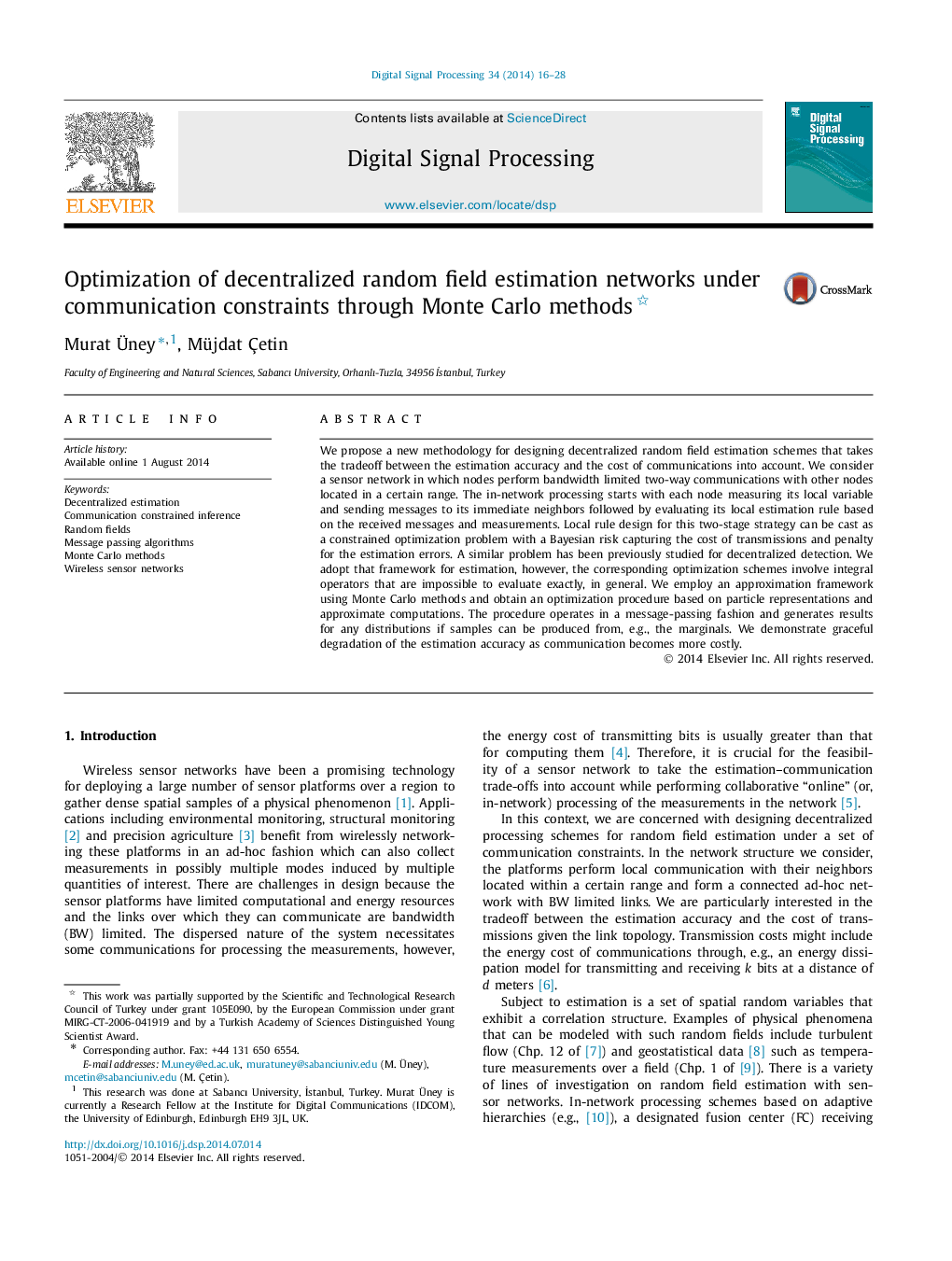| Article ID | Journal | Published Year | Pages | File Type |
|---|---|---|---|---|
| 6952078 | Digital Signal Processing | 2014 | 13 Pages |
Abstract
We propose a new methodology for designing decentralized random field estimation schemes that takes the tradeoff between the estimation accuracy and the cost of communications into account. We consider a sensor network in which nodes perform bandwidth limited two-way communications with other nodes located in a certain range. The in-network processing starts with each node measuring its local variable and sending messages to its immediate neighbors followed by evaluating its local estimation rule based on the received messages and measurements. Local rule design for this two-stage strategy can be cast as a constrained optimization problem with a Bayesian risk capturing the cost of transmissions and penalty for the estimation errors. A similar problem has been previously studied for decentralized detection. We adopt that framework for estimation, however, the corresponding optimization schemes involve integral operators that are impossible to evaluate exactly, in general. We employ an approximation framework using Monte Carlo methods and obtain an optimization procedure based on particle representations and approximate computations. The procedure operates in a message-passing fashion and generates results for any distributions if samples can be produced from, e.g., the marginals. We demonstrate graceful degradation of the estimation accuracy as communication becomes more costly.
Related Topics
Physical Sciences and Engineering
Computer Science
Signal Processing
Authors
Murat Ãney, Müjdat Ãetin,
